List of national founders
The following list of national founding figures is a record, by country, of people who were credited with establishing their nation. National founders are typically those who played an influential role in setting up the systems of governance, (i.e., political system form of government, and constitution), of the country. They can also be military leaders of a war of independence that led to the existence of the country.
Africa
_1978%2C_MiNr_2293.jpg)

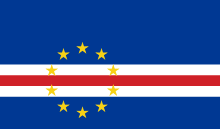 Cape Verde
Cape Verde
Amílcar Cabral (var. Amílcar Lopes da Costa Cabral) (12 September 1924–20 January 1973) was an agricultural engineer, writer, and a nationalist thinker and political leader. He was also one of Africa's foremost anti-colonial leaders. Amílcar Cabral led the nationalist movement of Guinea-Bissau and Cape Verde Islands and the ensuing war of independence in Guinea-Bissau. He was assassinated on 20 January 1973, several months before Guinea-Bissau's unilateral declaration of independence. He is considered a founder of Cape Verde.
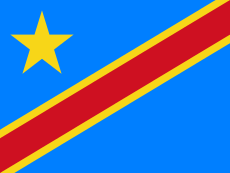 Democratic Republic of the Congo
Democratic Republic of the Congo
Patrice Lumumba, Joseph Kasa-Vubu, Albert Kalonji, Jean Bolikango, Cléophas Kamitatu, and Paul Bolya are all considered "Fathers of Independence" in the Congo.[1]
 Egypt
Egypt
The Founder of Independent Egypt Saad Zaghloul (1859–August 23, 1927) was a politician who served in many ministries of the Egyptian government, and was imprisoned by the British in Malta, but returned to Egypt to complete the revolution in 1919. Zaghloul then was able to make the Sultan of Egypt (later King) Fuad I convince the British to give Egypt independence with a friendly British-Egyptian relationship and in 1922, Egypt was proclaimed an independent Kingdom, the Kingdom of Egypt with Saad Zaghloul as its Prime Minister.
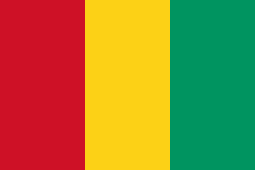 Guinea
Guinea
Ahmed Sékou Touré (var. Ahmed Seku Turay) (January 9, 1922–March 26, 1984) was a Guinean political leader and President of Guinea from 1958 to his death in 1984. Touré was one of the primary Guinean nationalists involved in the independence of the country from France.
He is with Kwame Kuruma one of the founders of the African Union, and the Guinean Diallo Telly was the first general secretary of the African Union.
 Ghana
Ghana
Whilst Kwame Nkrumah (1909–1972) led the nation to its independence from the United Kingdom in 1957,[2] he features as only one part of Ghana's six founders commonly known as The Big Six (Ghana). The Big Six were Ebenezer Ako-Adjei, Edward Akufo-Addo, Joseph Boakye Danquah, Emmanuel Obetsebi-Lamptey, William Ofori Atta as well as Nkrumah. They faced the British government on behalf of returning soldiers and then set in motion the establishing of the republic independent from the British government.
 Kenya
Kenya
Jomo Kenyatta served as the first Prime Minister (1963–1906) and President (1964–1978) of the Republic.
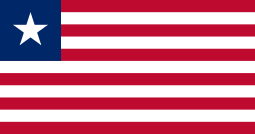 Liberia
Liberia
Joseph Jenkins Roberts (1809–1876) was born a free man of Black American descent. In 1829 his family moved to Liberia. In 1839, Roberts became Liberia's lieutenant governor and afterwards, its governor (1841–1848). He is known as the father of Liberia and officially declared Liberia's independence in 1847.[3]
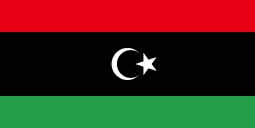 Libya
Libya
King Idris Al-sanusi, also known as Idris I of Libya, (12 March 1889–25 May 1983) was the first and only king of Libya, reigning from 1951 to 1969, and the Chief of the Senussi Muslim order. Idris as-Senussi proclaimed an independent Emirate of Cyrenaica in 1949. He was also invited to become Emir of Tripolitania, another of the three traditional regions that now constitute modern Libya (the third being Fezzan).[4] By accepting he began the process of uniting Libya under a single monarchy. A constitution was enacted in 1949 and adopted in October 1951. A National Congress elected Idris as King of Libya, and as Idris I he proclaimed the independence of the United Kingdom of Libya as a sovereign state on 24 December 1951.
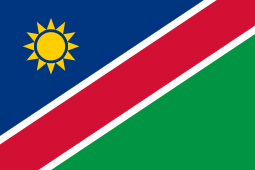 Namibia
Namibia
 Nigeria
Nigeria
- Herbert Macaulay (1864–1946)
- Professor Eyo Ita (1904–1980s)
- Alvan Ikoku (1900–1971)
- Dr. Nnamdi Azikiwe (1904–1996)
- Chief Obafemi Awolowo (1909–1987)
- Al-Haji Sir Ahmadu Bello (1910–1966)
- Al-Haji Sir Abubakar Tafawa Balewa (1912–1966)
- Chief Anthony Enahoro (1923-2010)
- Sir Egbert Udo Udoma (1917–1998)
- General Murtala Mohammed (1938–1976)
- Al-Haji Aminu Kano (1920–1983)
- Joseph Tarka (1932–1980)
- Dennis Osadebay (1911–1994)
are considered founders of Nigeria. The troika of Obafemi Awolowo, Nnamdi Azikiwe, and Ahmadu Bello negotiated Nigeria's independence from Britain, aided by such figures as Chieftess Funmilayo Ransome-Kuti.
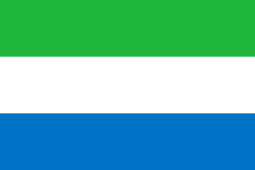 Sierra Leone
Sierra Leone
Freetown, Sierra Leone was founded in part by an African American slave called Thomas Peters in 1792 who convinced British abolitionists to help settle 1,192 Black Americans who fought for the British in return for freedom. Peters alongside other Black Americans David George and Moses Wilkinson were influential in the establishment of Freetown, but it was Peters who is remembered today as the true influential leader and founder of Sierra Leone. A street was named for Thomas Peters in Freetown by the Krio Mayor Winstanley Bankole Johnson.[5]
Nelson Mandela (1918–2013) was the former President of South Africa, in office from 1994 to 1999. He led the negotiations, together with F. W. de Klerk, to racially integrate and unite the country.
- Oliver Tambo
- Walter Sisulu
- Govan Mbeki
- Joe Slovo
- Ahmed Kathrada
- Raymond Mhlaba
- Robert Sobukwe
- Joe Modise
- Chris Hani
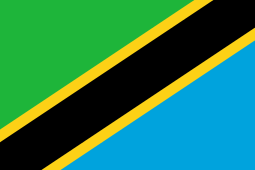 Tanzania
Tanzania
.jpg)
Julius Nyerere Key figure in the independence of the country and first President.
 Tunisia
Tunisia
The founder of the modern Tunisia is Habib Bourguiba.
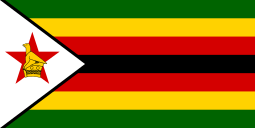 Zimbabwe
Zimbabwe
- Rekayi Tangwena
- Joshua Nkomo
- Leopold Takawira
- Simon Muzenda
- Robert Mugabe
- Ndabaningi Sithole
- Herbert Chitepo
- Josiah Tongogara
- Enos Nkala
- Edgar Tekere
- George Nyandoro
- James Chikerema
- Solomon Mujuru
- Alfred Nikita Mangena
- Josiah Tungamirai
- Jason Moyo
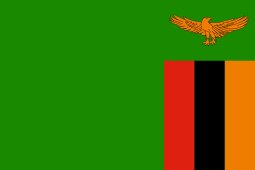 Zambia
Zambia
Asia
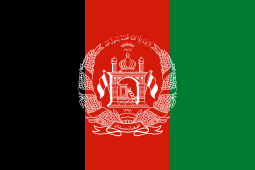 Afghanistan
Afghanistan
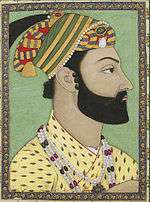
Ahmad Shah Durrani (1723–1773) unified the Afghan tribes and founded Afghanistan in 1747.[6] His mausoleum is next to the Shrine of the Cloak in Kandahar, Afghanistan, where he is fondly known as Ahmad Shah Baba (Ahmad Shah the Father).
 Armenia
Armenia
- Aram Manukian is considered the founder of the First Republic of Armenia.[7][8][9][10][11]
 Azerbaijan
Azerbaijan
Mammad Amin Rasulzade is the founder of Azerbaijan. Mehemmed Emin Resulzade (Azerbaijani: Məhəmməd Əmin Axund Hacı Molla Ələkbər oğlu Rəsulzadə, Turkish: Mehmed Emin Resulzâde; 31 January 1884, Novkhana, near Baku — 6 March 1955, Ankara) was an Azerbaijani statesman, scholar, public figure and one of the founding political leaders of Azerbaijan Republic (1918–1920). His expression "Bir kərə yüksələn bayraq, bir daha enməz!" ("The flag once raised will never fall!") has become the motto of the independence movement in Azerbaijan in the 20th century.
 Bangladesh
Bangladesh
The founding fathers of the People's republic of Bangldesh are Sher-e-Bangla A. K.Fazlul Haq, Abdul Hamid Khan Bhasani, Sheikh Mujibur Rahman, including several brave military personnel who braved all odds and stood up to the crucial calling of independence were the founders of the People's Republic of Bangladesh. Since before the British empire dissolved their occupation and departed from South Asia, the Bangla leaders were relentless in their quest for the freedom, empowerment and equaity in the lives of the people in eastern Bangla.
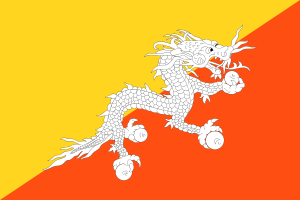 Bhutan
Bhutan
Shabdrung Ngawang Namgyal (1594–1651) fled Tibet and unified the fiefdoms of Bhutan. He established the dual system of shared power between secular and Buddhist leadership that continues as a tradition to the present.
 China
China

Sun Yat-sen is known as the "Father of the Nation" (国父) and the "Forerunner of the Democratic Revolution" (革命先行者) in China. [12] Huangdi is revered as the legendary founder and initiator of Chinese civilization.
 Georgia
Georgia
King Pharnavaz I of Iberia (302–237 BC) was the first king of the united Georgian kingdom of Iberia. Bagrat III is considered as the first king of united Georgian Kingdom. Zviad Gamsakhurdia is the first president and founder of modern republic of Georgia.
 India
India


The movement led by Muhammad Ali Jinnah, the leader of All India Muslim League, resulted in the partition of India on August, 1947, based on Two-Nation Theory. Mohan Das Karam Chand Gandhi or simply Mahatma Gandhi is the founder of country, Considered as "Bapu"(Dad or Father)
Ancient
- Emperor Ashoka, 3rd century BC emperor of the Maurya Dynasty who united much of the Indian subcontinent under his rule forming the largest Indian empire till date.
Modern
- B. R. Ambedkar (1891–1956) is the Founding Father of Modern India[13] and Father of The Indian Constitution. He served as the first Minister of Law and Justice.
Other prominent Indian independence activists include Netaji Subhash Chandra Bose was the founding father of Indian National Army. Pandit Jawaharlal Nehru who served as the 1st Prime Minister of India (1947–64), Sardar Vallabhbhai Patel who served as the first Deputy Prime Minister of India and Home Minister of India, C. Rajagopalachari who served as the last Governor-General of India, J. B. Kripalani and Abul Kalam Azad both of whom served as the President of the Indian National Congress.
 Indonesia
Indonesia

Sukarno and Mohammad Hatta are the founders of Indonesia. They both signed the Proclamation of Independence which then read by Sukarno, proclaiming the independence of Indonesia from the Netherlands on 17 August 1945. A day later, they were elected respectively as the first President and Vice President of Indonesia. As the Netherlands did not recognize the independence, both of them were prominent figures and were seen as symbol of unity among Indonesian people to fight against Dutch during the National Revolution from 1945 to 1949. In August 1949, Hatta headed a delegation to the Hague for a Round Table Conference which then led to the recognition of Indonesian independence by the Netherlands on 23 December 1949.[14]
 Iran
Iran
Cyrus the Great (600 BC–530 BC) was the founder of the Persian Empire under the Achaemenid dynasty an empire without precedent—a first world-empire of historical importance.[15]
 Israel
Israel
Theodor Herzl is considered the founder of the Zionist movement and thus indirectly a founder of Israel. David Ben-Gurion was the founder of the State of Israel and the first Prime Minister of Israel.
Abraham is revered as the father of the Jewish People, while King David is revered as the greatest of all Jewish Kings.
 Kazakhstan
Kazakhstan

There is no law in the country which officially recognizes a single individual as the "Father of the Nation". Either title may be associated with any of the following prominent historical persons, owing to their impact on the country during their respective times:
Alikhan Bukeikhanov (March 5, 1866–September 27, 1937) was a Kazakh statesman, politician, publicist, teacher, writer and environmental scientist. He was leader and founder of the Alash Orda national liberation movement. He sided with the westernizers in the Kazakh political scene who were promoting the idea of the Western culture into the Kazakh steppe. In 1920, after the establishment of Soviet hegemony, Bukeikhanov joined the Bolshevik party and returned to scientific life. His earlier political activities caused the authorities to view him with suspicion, leading to arrests in 1926 and 1928. In 1926, Bukeikhanov was arrested on the charge of counter-revolutionary activity and put into Butyrka prison in Moscow. But due to the lack of evidence in the criminal case against him, he was released from prison. In 1930, the authorities banished him to Moscow, where he was arrested a final time in 1937 and executed.
Dinmukhamed Kunayev (January 12, 1912–August 22, 1993) was a Kazakh Soviet communist politician. He became first secretary of the Central Committee of the Communist Party of Kazakhstan again in 1964 when Khrushchev was ousted and replaced by Brezhnev. He kept his position for twenty-two more years. He was an alternate member of the Politburo from 1967, and a full member from 1971 to 1987. During Kunayev's long rule, Kazakhs occupied prominent positions in the bureaucracy, economy and educational institutions. A Brezhnev loyalist, he was removed from office under pressure from Mikhail Gorbachev, who accused him of corruption. On 16 December 1986 the Politburo replaced him with Gennady Kolbin, who had never lived in the Kazakh SSR before. This provoked street riots in Almaty, which were the first signs of ethnic strife during Gorbachev's tenure. In modern Kazakhstan, this revolt is called Jeltoqsan, meaning December in Kazakh.
Nursultan Nazarbayev was elected the nation's first president following its independence from the Soviet Union in December 1991. In 2010 Parliament of Kazakhstan named him Елбасы (Elbasy) which means "Leader of the Nation".
 Japan
Japan
Emperor Jimmu (神武天皇 Jinmu-tennō) (traditional reign 18 February 660 BC–9 April 585 BC) was the first Emperor of Japan,[16] according to the traditional order of succession.[17] The Japanese national holiday National Foundation Day (建国記念の日 Kenkoku Kinen no Hi) is celebrated annually on February 11 in commemoration of the founding of the nation of Japan and the ascension of Emperor Jimmu to the imperial throne.[18]
 North Korea
North Korea
Kim Il-sung was the first leader of North Korea at the time of the establishment of the country in 1948.
 South Korea
South Korea
Before 1945, North Korea and South Korea were both one country, sharing the same history.
Hwanung (환웅/桓雄) and his son Dangun Wanggeom (단군왕검/檀君王儉), legendary founders of Gojoseon, the first kingdom of Korea as a whole. Hwanung was descended to Baekdu Mountain. Baekdu Mountain is today part of North Korea
However, Gaecheonjeol is not celebrated and recognized at all, unlike South Korea.
 Malaysia
Malaysia
Tunku Abdul Rahman (8 February 1903 – 6 December 1990) usually known as "the Tunku" (a princely title in Malaysia), and also called Bapa Kemerdekaan (Father of Independence) or Bapa Malaysia (Father of Malaysia), was Chief Minister of the Federation of Malaya from 1955, and the country's first Prime Minister from independence in 1957. He remained Prime Minister after Sabah, Sarawak, and Singapore joined in 1963 to form Malaysia. Tun Tan Cheng Lock and Tun V.T. Sambanthan are also considered as the main founders of Malaysia.

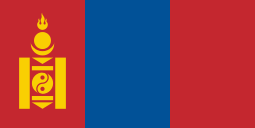 Mongolia
Mongolia
Modu Chanyu, (c. 234 BC–174 BC), founded the first Mongolian Xiongnu state.
Genghis Khan (c. 1162–1227), who by uniting the nomadic tribes founded the Mongol Empire, is generally regarded as the father of modern-day Mongolia. Although downcast during the communist-era, Genghis Khan's reputation surged after the democratic revolution in 1990. Modern Mongolia is often called "Genghis's Mongolia".
 Myanmar
Myanmar
Anawrahta is considered to be founder of ancient Burmese Kingdom of Pagan. General Aung San is the founder of modern Burma (also known as Myanmar). Although he did not live to see the country's independence, he is credited in forming the basic structure of the independence movement and government. Aung San started his political career in 1930 as the editor of Rangoon University's Newspaper – where he accused one of the British administrators of misconduct. In late 1940 he went to Japanese controlled Taiwan and Xiamen to receive military training, and he led the Burmese National Army, spearheading the Japanese invasion of Burma. Later, he switched sides to the Allies, and helped in the Burma Campaign. After the war, he was appointed to the government of a returning British Administration, and was able to negotiate Burma's independence. He helped organized the Panglong Agreement in February 1947, achieving independence for all Burmese territories. However, on Saturday, 19 July 1947, Aung San, along with his cabinet ministers, was assassinated at the secretariat building in Rangoon.
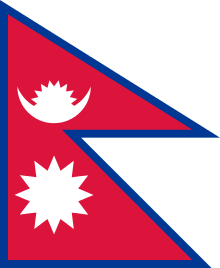 Nepal
Nepal
Prithvi Narayan Shah was largely responsible for the unification of Nepal, and is considered to be the founder of Nepal. His vision of ruling over a unified Nepal is said to have started when atop a hill near Nepa Valley (Present day Kathmandu), he decided he would like to rule over it. His strategic plan was very successful and his successors continued to build on his progress. Prithvi Narayan Shah's descendents continued to rule over Nepal for a total of 240 years before the 2006 democracy movement in Nepal toppled the constitutional power exercised by King Gyanendra, before abolishing the monarchy in 2008.
 Pakistan
Pakistan

Pakistan's founder is Muhammad Ali Jinnah, who is hailed as Quaid-e-Azam or "Great Leader". Other prominent founders include the poet Allama Iqbal, believed to be the first person to propagate the idea of a state for India's Muslims and members of Pakistan's first Cabinet such as Liaquat Ali Khan, Abdul Rab Nishtar, Malik Feroze Khan Noon, Khwaja Nazimuddin and I. I. Chundrigar. Some historians credit the Muslim reformist Sir Syed Ahmad Khan as a founder of Pakistan
 Philippines
Philippines

There is no law in the country which officially recognizes a single individual as the "Father of the Nation". Either title may be associated with any of the following prominent historical persons, owing to their impact on the country during their respective times: José Rizal (June 19, 1861–December 30, 1896) was a Filipino nationalist during the tail end of the Spanish colonial period of the Philippines. An ophthalmologist by profession, Rizal became a writer and a key member of the Filipino Propaganda Movement which advocated political reforms for the colony under Spain. He was executed by the Spanish colonial government for the crime of rebellion after an anti-colonial revolution, inspired in part by his writings, broke out. Though he was not actively involved in its planning or conduct, he ultimately approved of its goals which eventually led to Philippine independence. He is widely considered one of the greatest heroes of the Philippines, and is implied by Philippine law to be one of the national heroes. He was the author of the novels Noli Me Tángere, and El Filibusterismo, and a number of poems and essays. Andrés Bonifacio (November 30, 1863 – May 10, 1897) De facto President and a leader during the Philippine Revolution in 1896, which saw armed resistance against the Spanish Empire. Emilio Aguinaldo (March 22, 1869 – February 6, 1964) Leader of the latter part of the Philippine Revolution and first president of the Philippines through the 1899 Malolos Congress, which oversaw the promulgation of the Malolos Constitution.
 Singapore
Singapore
Lee Kuan Yew (16 September 1923–23 March 2015) often referred to as the Father of Singapore or by the initials LKY, he was the first Prime Minister of the Republic of Singapore, governing for three decades. He is also widely recognised as the founder of modern Singapore.
 Sri Lanka
Sri Lanka
.jpg)
Prince Vijaya is considered to be the first King of Sri Lanka with King Dutugemunu honored as the first king to unify Sri Lanka. D. S. Senanayake (20 October 1883–22 March 1952) is widely known as the modern (post independence) father of the nation. Sirimavo Bandaranaike (17 April 1916–10 October 2000) was the first female Prime Minister of Sri Lanka and the modern world's first female head of government. William Gopallawa (17 September 1896–31 January 1981) was the first Constitutional President while J. R. Jayewardene (17 September 1906–1 November 1996) was the first Executive President. Chandrika Kumaratunga (29 June 1945–Present) was the first female Executive President of the country.
 Turkey
Turkey
Osman Bey, the founder of Ottoman Empire.
Mustafa Kemal Atatürk, the founder and first president of the Republic of Turkey. Following the First World War, the huge conglomeration of territories and peoples that formerly comprised the Ottoman Empire was divided into several new states. The Turkish War of Independence (1919–22), initiated by Mustafa Kemal Atatürk and his colleagues in Anatolia, resulted in the establishment of the modern Republic of Turkey (Türkiye Cumhuriyeti) in 1923.[19] He subsequently introduced many radical reforms with the aim of transforming the old Ottoman-Turkish state into a new secular republic.[20]
 Vietnam
Vietnam
Kinh Dương Vương and descendants of the Hồng Bàng dynasty (reigned between 2879–258 BC) are revered as the founders of the first Vietnamese state and civilization. Its commemoration, also known as Giỗ Tổ Hùng Vương, is an official public holiday in Vietnam, which is celebrated on the 10th day of the 3rd lunar month.
Ho Chi Minh is the first President of the Democratic Republic of Vietnam and the founder of the Communist Party of Vietnam. He proclaimed the independence of Vietnam from Japanese and French on September 2nd 1945. He later led Vietnam through wars against French and American.
Europe
 Albania
Albania
- Skanderbeg was a prominent historical figure in the history of Albania and of the Albanian people. He successfully fought against the Ottoman Empire during its apex (the time of Sultans Murad II and Mehmed II) and maintained independence for 25 years (1443–68) until his death. He is the national hero of the Albanians.
- Ismail Qemali was a distinguished leader of the Albanian national movement at the beginning of the 20th century, founder of the modern Albanian state in 1912, and its first head of state and government.
 Bosnia and Herzegovina
Bosnia and Herzegovina
Alija Izetbegović, the war-time president of Bosnia, is deemed the national founder of modern Bosniaks.[21]
 Bulgaria
Bulgaria
Kubrat was the ruler of Old Great Bulgaria in 632. His son Asparukh migrated to the Balkans and established the First Bulgarian Empire in 681. Modern day Bulgaria is a direct successor of this state. Asparukh's brother Kotrag migrated north and founded Volga Bulgaria. Mythical rulers of Bulgaria exist before them, dating back as far as 3rd millennium BC.
 Croatia
Croatia
- Franjo Tuđman, first President of the Republic of Croatia 1990–99.[22] Self-proclaimed "Father of the Nation".[23]
 Czech Republic
Czech Republic
Václav Klaus is a Czech prominent politician, later President, which agreed on dissolution of Czechoslovakia with the Slovaks. Václav Havel was the First President of the Czech Republic (1993–2003). Founder of modern Czech statehood is considered the First President of Czechoslovakia Tomáš Garrigue Masaryk (1918–1935). The Kingdom of Bohemia was formally established in 1198 by Přemysl Ottokar I, patron Saint is Saint Wenceslaus, which murder is celebrated as Statehood Day.
 France
France
Clovis I united all the frankish tribes in Gaul and gave them a common catholic religion. Napoleon founded the French Empire. Louis-Napoléon Bonaparte, later known as Napoleon III is the first French President, elected 1848. Charles de Gaulle is a hero of the French resistance to Germany during WW2, and the first president of the 5th Republic.
 Germany
Germany
Before the national unification of Germany in 1871, German nationalists sought out multiple legendary founders of the German nation, such as Arminius, Charlemagne and - as championed by Friedrich Ludwig Jahn and Richard Wagner - Henry the Fowler. Otto von Bismarck (1815–1898), the "Iron Chancellor", engineered the unification of the numerous states of Germany in 1871. Modern, democratic Germany was decisively shaped by the "Fathers of the Basic Law" in the 1948 Constitutional Convention at Herrenchiemsee, and by the first German Chancellor, Konrad Adenauer. For reunified Germany, the slogan "Wir sind das Volk!" ("We are the people!") became symbolic, thus making all Germans founders of modern Germany.
 Greece
Greece
Ancient
- Hellen, mythical progenitor of the Greeks, who gives his name to both the people and the country in the Greek language.
- Theseus, the semi-legendary founder of Athens [24]
- Solon (594 BC) and Cleisthenes (508/7 BC), the authors of the Athenian democratic constitution.
- Lycurgus of Sparta, the legendary Sparta lawgiver credited with establishing the city's constitution and way of life
- Cadmus, the legendary founder and first King of Thebes.
- Alexander the Great, often seen as the first person to unify all the Greek city-states into a single political entity
Modern
- Constantine the Great, first Emperor of the Eastern Roman Empire and founder of Constantinople, Constantine XI Palaiologos, last Byzantine Emperor, and other Byzantine figures revered by the modern Greek population, especially during the period between the Fall of Constantinople and the foundation of the modern state.
- Adamantios Korais, Theophilos Kairis and other figures of the Greek Enlightenment who contributed to the country's national awakening leading up to its revolution against the Ottoman Empire
- Rigas Feraios, writer and revolutionary who is remembered as a national hero and the first victim of the uprising against the Ottomans.
- Emmanuil Xanthos, Nikolaos Skoufas and Athanasios Tsakalov, the founders of the Filiki Eteria
- Theodoros Kolokotronis, Georgios Karaiskakis, Andreas Vokos Miaoulis, Laskarina Bouboulina, Yannis Makriyannis and other military leaders of the Greek War of Independence
- Alexander Ypsilantis, leader of the Filiki Eteria and founder and leader of the Sacred Band
- Alexandros Mavrokordatos, President of the First National Assembly at Epidaurus, co-author of the Greek Declaration of Independence and first Provisional Constitution and first head of government (President of the Executive) of Modern Greece.
 Hungary
Hungary
According to Anonymus the fejedelem who made the Magyars settle into the Carpathian Basin in 896 A.D. was Árpád. His dynasty reigned over the Hungarian Kingdom from the ninth century until 1301. In Hungary Stephen I of Hungary is commonly regarded as the founder of the nation. He was Hungary's first king and united the Magyar people into the Kingdom of Hungary. Amongst others, Lajos Kossuth is supposed to be the Pater Patriae. He is known as the leader of the Hungarian Revolution of 1848 against the Habsburgs, and therefore founder of the modern Hungarian Republic.
 Ireland
Ireland
The Irish Free State was established after the Irish War of Independence (1919–21), in which Éamon de Valera, Cathal Brugha and Michael Collins were key leaders. However, they became antagonists in the Irish Civil War (1922–23), in which Collins and Brugha were killed and de Valera defeated. For decades, the inheritors of the opposing factions bypassed these sensitivities to honour the earlier leaders of the Easter Rising of 1916, in particular the seven signatories of the Proclamation of the Irish Republic: Patrick Pearse, James Connolly, Éamonn Ceannt, Tom Clarke, Seán Mac Diarmada, Thomas MacDonagh, and Joseph Plunkett.
 Italy
Italy
Before 1861
- Roman Italy was united under the same administrative division by the first Roman Emperor Augustus, the adopted son of Julius Caesar.
- Charlemagne first created a Kingdom of Italy in medieval times.
- Napoleone Bonaparte was the first to use the title of President of the Italian Republic.
Modern Italy
- King Vittorio Emanuele II, Giuseppe Garibaldi, Prime minister Count di Cavour and Giuseppe Mazzini have been referred to as the Four Fathers of the Fatherland. Italy was unified in 1861 and Rome became its capital in 1870.[25]
- The members of the Assemblea Costituente (the Constituent Assembly of 1946–1947) are considered the "fathers" of the Italian Republic, which replaced the Monarchy after a referendum in 1946. Prominent members among them included Alcide De Gasperi (also counted among the founding fathers of the European Union), the communist Palmiro Togliatti and Vittorio Emanuele Orlando, the "premier of victory" in WWI.
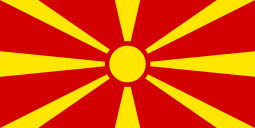 Macedonia
Macedonia
As well respected statesmen in Macedonia are considered Metodija Andonov-Čento (first president of SR Macedonia), Nikola Karev (president of Kruševo Republic) and Kiro Gligorov (first president of independent Macedonia). However, often, as "fathers" of the nation are considered Gotse Delchev, Krste Misirkov, Georgi Pulevski and Dimitrija Čupovski and other prominent authors and revolutionaries.
 Montenegro
Montenegro
- Petar I Petrović-Njegoš (1747–1830) acquired de facto independence for Montenegro from the Ottoman Empire and created the first Montenegrin law in modern era
 Netherlands
Netherlands
Prince William I of Orange (1533–1584) or William the Silent, is known as the father of the Netherlands. He led the Dutch in their Revolt against Spain for their independence. Today he is often called Vader des Vaderlands which in English means, Father of the Fatherland.[26]
 Norway
Norway
King Harald Fairhair, who unified Norway and ruled c. 872–930, is often considered the founder of the nation.
Usually the Norwegian Constituent Assembly at Eidsvoll in 1814, consisting of 112 men from most of the country, in Norway often referred to as Eidsvoll Men or the Fathers of the Constitution.[27]
 Poland
Poland
Mieszko I (ca. 920/45–25 May 992), the first historical ruler of Poland, Mieszko I is considered the de facto creator of the Polish state. He was a Duke of the Polans from about 960 until his death. Mieszko I's marriage in 965 to the Přemyslid princess Dobrawa and his baptism in 966 put him and his country in the cultural sphere of Western Christianity. According to existing sources, Mieszko I was a wise politician, a talented military leader and charismatic ruler. He successfully used diplomacy, concluding an alliance with Bohemia first, and then with Sweden and the Holy Roman Empire. In foreign policy, he placed the interests of his country foremost, even entering into agreements with former enemies. On his death, he left to his sons a country of greatly expanded territory, with a well-established position in Europe. Mieszko I also appeared as "Dagome" in a papal document from about 1085, called "Dagome iudex", which mentions a gift or dedication of Mieszko's land to the Pope (the act took place almost a hundred years earlier).
 Portugal
Portugal
- Viriathus was the most important leader of the Lusitanian people that resisted Roman expansion into western Hispania or Iberia (as the Greeks called it). Today Viriathus is regarded as a national hero and an enduring symbol of Portuguese nationality and independence, portrayed by artists and celebrated by its people throughout the centuries.
- Henry of Burgundy (1066–1112), was appointed Count of Portugal as a reward for military services to Kingdom of León, and with the purpose of expanding the territory southwards. And, more importantly, his son, Count Afonso I of Portugal (1109–1185), a Templar Brother who took control of the county after Henry died and was recognized by the Holy See, in 1179, as the first King of Portugal, through the Manifestis Probatum bull.
 Romania
Romania
- Decebalus and Trajan are considered to be the fathers of the Romanian people, as Roman veterans were settled on the present-day territory of Romania following Trajan's Dacian Wars.
- Michael the Brave was the first Romanian prince to rule over the traditional Romanian provinces (Wallachia, Moldavia and Transylvania) in a personal union, albeit briefly.
- Alexandru Ioan Cuza was elected as the first leader of the modern Romanian state. He presided over Wallachia and Moldavia in a personal union, which later became permanent even though he was forced to abdicate.
 Russian Federation
Russian Federation
Boris Yeltsin was the first president of the Russian Federation.
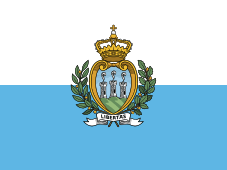 San Marino
San Marino
Saint Marinus was the founder of the world's oldest surviving republic, San Marino, in 301. Tradition holds that he was a stonemason by trade who came from the island of Rab on the other side of the Adriatic Sea (modern Croatia), fleeing persecution for his Christian beliefs in the Diocletianic Persecution.
 Serbia
Serbia
- Stefan Nemanja, Grand Prince of Serbia (r. 1166–1196). The Serbian Church, under St. Sava, depicted Nemanja as the founder of Serbia.[28][29]
- Karađorđe, Grand Leader (1804–1813), liberator of Serbia, organizer and leader of the Serbian Revolution.[30][31][32]
The honorific Father of the Fatherland (Отац Отаџбине) has been given to Saint Sava,[33] Karađorđe,[34] and Miloš Obrenović, the latter having been given it by the National Assembly during his lifetime.[35]
 Slovakia
Slovakia
Vladimír Mečiar was the main proponent of the Slovak independence in the year 1993. He has served as prime minister until 1998, when he narrowly lost the election.
Many Slovaks see Great Moravia as their ancestors, which would make Mojmír I a founder.
 Slovenia
Slovenia
France Bučar is a Slovenian politician, legal expert and author. Between 1990 and 1992, he served as the first chairman of the freely elected Slovenian Parliament. He was the one to formally declare the independence of Slovenia on 25 June 1991. He is considered one of the founders of Slovenian democracy and independence. He is also considered, together with Peter Jambrek, as the main author of the current Slovenian constitution. Jože Pučnik was president of DEMOS and one of the main persons in the Slovenian fight for independence. The largest Slovenian airport is named Letališče Jožeta Pučnika (Jože Pučnik airport). Lojze Peterle was first prime minister of Slovenia and Milan Kučan was the first president.
 Spain
Spain
Catholic Monarchs in the 15th century were responsible for the unification of Spain, both coming from the noble House of Trastámara. Charles V, Holy Roman Emperor (1500–1558) was the first monarch of the Spanish Empire.
 Sweden
Sweden
While Sweden had existed as a monarchy of sorts long before his time, Birger Jarl, father of and regent for Valdemar, King of Sweden, can be said to have established Sweden as a nation. Birger was Jarl in the years 1248–66.
Gustav I of Sweden, who secured Sweden's independence from Denmark in 1523, is often considered a father of the nation.
 Switzerland
Switzerland
Both the anonymous Eidgenossen who drew up the Federal Charter of 1291, or the liberal statesmen who helped found the modern Swiss Confederation in 1848 can be considered the founders of Switzerland. Among the latter, those who became the first members of the Swiss Federal Council were perhaps the most notable: Ulrich Ochsenbein, Jakob Stämpfli, Jonas Furrer, Josef Munzinger, Henri Druey, Friedrich Frey-Herosé, Wilhelm Matthias Naeff and Stefano Franscini.
 Ukraine
Ukraine
- Vladimir the Great or Volodymyr the Saint - the baptizer of the Kievan Rus'. Ukraine derives its identity from this early medieval state.
- Bohdan Khmelnytsky – (c. 1595–6 August 1657) was a hetman of the Zaporozhian Cossack Hetmanate of Ukraine. He led an uprising against the Polish-Lithuanian Commonwealth magnates (1648–1654) which resulted in the creation of a Cossack state.
 United Kingdom
United Kingdom
As the UK formed over many years, its founders did not live at the same time as each other. They include: Humphrey Wingfield, Speaker of the English House of Commons in 1535, at the time of England's union with Wales; John Smith and James Ogilvy, 4th Earl of Findlater, Speakers of the English and Scottish Parliaments in 1707, when the Acts of Union united Scotland and England; Henry Addington and John FitzGibbon, leaders of the British and Irish parliaments at the time of the Acts of Union 1801, uniting Great Britain and Ireland; and Prime Minister David Lloyd George and Colonial Secretary Winston Churchill, who both signed the Anglo-Irish Treaty, which allowed most of Ireland to leave the U.K. and become the Irish Free State.
Northern Ireland had already been established in May 1921, having been created in the Government of Ireland Act in December 1920. This Act was guided through the British House of Commons by Sir Hamar Greenwood, M.P., the Chief Secretary for Ireland at the time. Northern Ireland had been created at the insistence of both Captain Sir James Craig and Sir Edward Carson, the Ulster Unionist leaders.
Americas
José de San Martín,[36] Simón Bolívar,[37] Antonio José de Sucre, Francisco de Paula Santander,[38] Francisco de Miranda[39] have been referred to as the founding fathers of the region comprising modern day Venezuela, Colombia, Peru, Ecuador, Bolivia and Panama.
 Bolivia
Bolivia
Simon Bolivar (1783–1830) and Antonio José de Sucre (1795–1830) are considered to be the founders of Bolivia.
 Brazil
Brazil

Pedro Álvares Cabral (1467 or 1468–1520) commander of the first Portuguese fleet to arrive in South America. José Bonifácio de Andrada e Silva (1763–1838), known as "Patriarch of Independence", is considered the maximum leader of the Independence movement because of his intellectual mentorship and political prominence, and Pedro I of Brazil (1798–1834), son of the King João VI of Portugal, the symbol of the "center of force and union", according to the Bonifácio strategy.
 Canada
Canada

The name "Fathers of Confederation" is given to those who attended the Charlottetown and Quebec Conferences in 1864, and the London Conference of 1866, to establish the Canadian Confederation. There were 36 original Fathers of Confederation.[40] Queen Victoria, who supported and encouraged this process, is known as the Mother of Confederation. She was the first Monarch under the 1867 Constitution and personally chose Ottawa as Canada's capital city. The political leaders who brought the other provinces into Confederation after 1867 are also referred to as "Fathers of Confederation."[41]
 Chile
Chile
Bernardo O'Higgins (1778–1842) and José Miguel Carrera (1785–1821) are usually considered the founders of Chile.
 Colombia
Colombia
Simón Bolívar, was founder of Gran Colombia, which also included Panama, Ecuador, and Venezuela. Francisco de Paula Santander wrote the first constitution of Colombia. Antonio Nariño ("Precursor of the Independence") and Camilo Torres were the most relevant statesmen of the First Republic.
 Costa Rica
Costa Rica
Juan Mora Fernández, first Head of State of Costa Rica.[42] José María Castro Madriz, First President of the Republic and proclaimed "Founder of the Republic" by Congress[43] Juan Rafael Mora Porras, President during Costa Rica's campaign against William Walker, proclaimed "Hero and Liberator" by Congress.
 Cuba
Cuba
José Martí is a Cuban national hero.
 Dominican Republic
Dominican Republic
Juan Pablo Duarte (1813–1876), Francisco del Rosario Sánchez (1817–1861) and Matías Ramón Mella (1816–1864) are considered the Fathers of the Country. Duarte is featured on the $1 coin; Sanchez on the $5 coin and on the now discontinued $5 bill; Mella on the $10 coin and on the also discontinued $10 bill.[44]
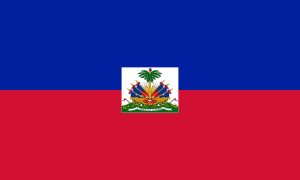 Haiti
Haiti
Toussaint L'Ouverture (20 May 1743–8 April 1803) and Jean-Jacques Dessalines (20 September 1758–17 October 1806) were revolutionary and early political leaders of Haiti. Henri Christophe and Alexandre Pétion were also important figures of early Haiti.
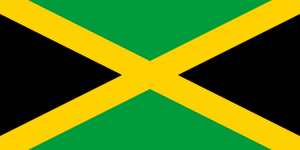 Jamaica
Jamaica
Alexander Bustamante and Norman Washington Manley are considered to be the founders of Jamaica. Alexander Bustamante is credited for his role as an influential union leader and as founder of the Jamaican Labour Party. Bustamante served as the then colony's first Chief Minister from 1953 to 1955 and later went on to lead Jamaica to independence from the United Kingdom in 1962, becoming the country's first Prime Minister. Norman Washington Manley is particularly noted for his role in securing universal suffrage for the country's population in 1944 along with founding the People's National Party. Manley also served as Chief Minister of Jamaica from 1955 to 1962.
 Mexico
Mexico
According to the decrees of the Congress of the Union of Mexico issued in 1822 and 1823,[45] the Mexican founders are Miguel Hidalgo y Costilla (1753–1811), Ignacio Allende (1769–1811), Juan Aldama (1774–1811), Mariano Abasolo (1783–1816), José María Morelos (1765–1815), Mariano Matamoros (1770–1814), Leonardo Bravo (1764–1812), Miguel Bravo (unknown-1814), Hermenegildo Galeana (1762–1814), Mariano Jiménez (1781–1811), Xavier Mina (1789–1817), Pedro Moreno (1775–1817), and Víctor Rosales (1776–1817).
Nine of the thirteen founders are buried in the Monument to the Independence in Mexico City.[46]
 Peru
Peru
José de San Martín and Simón Bolívar led Peru to independence and forged the country.[47]
 Uruguay
Uruguay
José Artigas is considered to be the founder of Uruguay.
 United States
United States

Within the large group known as "the Founding Fathers", there are two key subsets, the Signers (who signed the Declaration of Independence in 1776) and the Framers (who were delegates to the Federal Convention and took part in framing or drafting the proposed Constitution of the United States). Some historians have suggested a revised definition of the "Founding Fathers", including a significantly broader group of not only the Signers and the Framers but also all those who, whether as politicians or jurists or statesmen or soldiers or diplomats or ordinary citizens, took part in winning US independence and creating the United States of America.[48] Eminent American historian Richard B. Morris, in his 1973 book Seven Who Shaped Our Destiny: The Founding Fathers as Revolutionaries, identified the following seven figures as the key founders: John Adams, Benjamin Franklin, Alexander Hamilton, John Jay, Thomas Jefferson, James Madison, and George Washington.
 Venezuela
Venezuela
Simón Bolívar (1783–1830) is considered to be the founder not only of Venezuela, but of many of the region's countries as the Gran Colombia, which also included Panama, Ecuador, and Colombia and Bolivia. José Antonio Páez led the separation of Venezuela from the Gran Colombia and formed the modern statehood of the country.
Oceania
 Australia
Australia
Sir Henry Parkes (1815–1896) is often regarded as the "Father of Federation" in Australia. During the late 19th century, he was the strongest proponent for a federation of Australian territories. However, he died before Australia federated, and was never able to see his plan come to fruition.[49] Various other "founders" of Australia have also been unofficially recognised: Captain Arthur Phillip, the first governor of New South Wales and founder of the first British colony; and Sir Edmund Barton, the first Australian Prime Minister.
Andrew Inglis Clark is another founding father of Australia. He largely wrote the Australian Constitution in addition to developing the Hare-Clark system of voting and pushing for universal adult suffrage and other progressive ideals that would become law early in Australia's history.
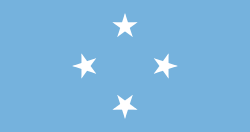 Federated States of Micronesia
Federated States of Micronesia
Chief Justice Andon Amaraich is regarded as "one of the founding fathers of the Federated States of Micronesia".[50][51]
 Fiji
Fiji
Ratu Sir Kamisese Mara is widely viewed as the "Founding Father" of an independent Fiji.[52][53][54][55][56]
 New Zealand
New Zealand
James Busby drafted the Declaration of the Independence of New Zealand and co-authored with William Hobson the Treaty of Waitangi, which is considered by some to be the founding document of the nation of New Zealand. The Treaty of Waitangi was not however the basis for either the British annexation of New Zealand, or the development of representative government in the colony.
 Papua New Guinea
Papua New Guinea
Grand Chief Sir Michael Somare is viewed as the "Founding Father" of Papua New Guinea.[57][58][59][60] The leading figure during the country's transition to independence from Australia, he was Papua New Guinea's first Prime Minister.
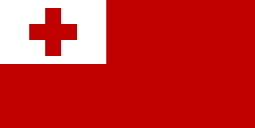 Tonga
Tonga
.jpg)
King George Tupou I, who united his country and established the contemporary Kingdom of Tonga, has been described as Tonga's "founding father".[61][62]
Former states and other territories
 Bohemia
Bohemia
Although the first known ruler of Bohemia was Bořivoj I, Duke of Bohemia, the real unifier of various Slavic tribes in Bohemia and creator of nation was Duke Boleslaus I, Duke of Bohemia. Charles IV, Holy Roman Emperor is regarded as the "Father of the Homeland" in the Czech Republic, because during his time the Kingdom of Bohemia experienced the greatest prosperity. Tomáš Garrigue Masaryk (1850–1937) is widely revered as the Liberator President who played the chief role in the 1918 melding of Bohemia, Moravia, Slovakia and Ruthenia into the Czechoslovak Republic, and who served as President of the Republic from 1918 to 1935.
 Republic of China
Republic of China
- Sun Yat-sen is revered as the founding father ("Father of the Country"–國父) of the Republic of China.
- Huangdi (reigned between 2698 and 2598 BC) is revered as the legendary founder and initiator of Chinese civilization.
 Czechoslovakia
Czechoslovakia
- Tomáš Garrigue Masaryk, first President of Czechoslovakia, known as President Liberator.
 England
England
It was King Athelstan (893/895–939 AD) who united the several Anglo-Saxon kingdoms of England around the year 927, when he became King of the English as opposed to his previous title, King of the West Saxons. However, his fame is often overshadowed by his predecessor and grandfather Alfred the Great (871-899 AD), who set in motion the unification of the English kingdoms and could also claim to be the nation's founder.
_(Fringeless).svg.png) Korea
Korea
For ancient Korea, Hwanung (환웅/桓雄) and his son Dangun Wanggeom (단군왕검/檀君王儉) are legendary founders of Gojoseon, the first kingdom of Korea. The founding date is usually calculated as 3 October 2333 BC; 3 October is a South Korean national holiday known as Gaecheonjeol (개천절/開天節, "Festival of the Opening of Heaven").
.svg.png) Russian Empire
Russian Empire
- Rurik - Varangian[63] prince and Prince of Novgorod beginning around 862 AD[64]
- Oleg, Rurik's kinsman and successor; extended his realm from Novgorod south to the Dnieper River valley and later moved his capital to the more strategic Kiev, where he established Kievan Rus' (the modern peoples of Belarus, Ukraine, and Russia all have Kievan Rus' as their cultural heritage).[65]
- Ivan the Terrible, Grand Prince of Moscow (also Prince of Novgorod) from 1533 to 1547 and Tsar of All the Russias from 1547 until his death in 1584. Ivan also claimed the historical title "Grand Prince of Kiev" for himself, but this was more of a flourish, since Kiev had never formed part of his realm and Moscow would not control the Kievan region until the Truce of Andrusovo (1667), but Kiev remained an important city in early Slavic history and culture.
- Peter the Great, Tsar from 1682, officially proclaimed the establishment of the Russian Empire in 1721, following the Treaty of Nystad, and himself its first emperor. He instituted sweeping reforms and oversaw the transformation of Russia into a major European power, re-organising the state in the Western style. Founder of Saint-Petersburg
.svg.png) Scotland
Scotland
The fictionalising medieval poem The Wallace (c. 1477) celebrated William Wallace (died 1305) as one of the founder-heroes of Scotland's struggle to preserve/re-establish independence from Plantagenet England.[66]
 Soviet Union
Soviet Union
- Vladimir Lenin - Officially one among many equal founders of the country, Lenin was, de facto, the paramount leader, founder of the Soviet Union and the CPSU, the party that ruled it via one-party rule as well as the founding father of the modern Russian state. He died soon after the country's founding and retained a special status of secular apotheosis for the rest of the country's history.
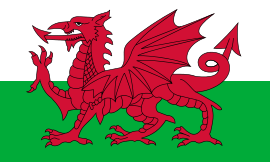 Wales
Wales
Magnus Maximus (ca. 335–28 August 388). According to Welsh tradition, Magnus Maximus (Welsh: Macsen-Wledig) was a Roman General who was proclaimed Emperor of Rome by his soldiers in Britain in 383. As such, he was the first "Romano-Britain" ruler of Britain and Rome itself. His mytho-heroic founding of Wales is celebrated in the modern Welsh anthem Yma o Hyd by Dafydd Iwan.
Hywel Dda (c.880–950) was responsible for the codification of traditional Welsh Law, which, according to historian John Davies, "was a powerful symbol of [Welsh] unity and identity, as powerful, indeed, as their language".[67]
Gruffydd ap Llywelyn (r. 1039–63) was the first Welsh king to rule over the entire territory of Wales, from about 1057 until his death in 1063.[68]
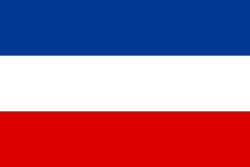 Kingdom of Yugoslavia
Kingdom of Yugoslavia
- King Alexander I of Yugoslavia, known as Alexander the Unifier
 Socialist Federal Republic of Yugoslavia
Socialist Federal Republic of Yugoslavia
- Josip Broz Tito, Marshal of Yugoslavia (1943–80)
References
- ↑ "Congo Celebrates 50th Anniversary of Independence". Congo Planet. Congo News Agency. 30 June 2010. Retrieved 20 February 2010.
- ↑ "Kwame Nkrumah's Vision of Africa". www.bbc.co.uk.
- ↑ Joseph Roberts, Liberia's first President! The African American Registry
- ↑ Diller, Daniel; Moore, John (1995). The Middle East. Congressional Quarterly. p. 308.
- ↑ Université Laval, University of Toronto/. "Biography – PETERS, THOMAS – Volume IV (1771-1800) – Dictionary of Canadian Biography". biographi.ca.
- ↑ "The World Factbook — Central Intelligence Agency". Cia.gov.
- ↑ Hovannisian, Richard (1971). The Republic of Armenia: The First Year, 1918–1919. University of California Press. p. 147. ISBN 9780520018051.
Aram pasha, as he was known to friend and foe alike, had been a veritable founder of the Armenian republic.
- ↑ Libaridian, Gerard J. (1991). Armenia at the crossroads: democracy and nationhood in the post-Soviet era: essays, interviews, and speeches by the leaders of the national democratic movement in Armenia. Watertown, Massachusetts: Blue Crane Nooks. p. 19. ISBN 9780962871511.
Aram Manukian (1879–1919), a leading member of the Dashnaktustiune, organized the defense of Van in 1915 and Yerevan in 1918. He is considered the founder of the Republic of Armenia in 1918.
- ↑ Asryan, Armen (2005). "Արամ Մանուկյանը հայոց մեծ ողբերգության տարիներին [Aram Manukyan in the Years of the Great Armenian Tragedy]". Patma-Banasirakan Handes (in Armenian) (1): 54. ISSN 0135-0536.
- ↑ Virabyan, Amatuni, ed. (2009). Արամ Մանուկյան. Փաստաթղթեր և նյութերի ժողովածու [Aram Manukian: Collection of documents and materials] (PDF) (in Armenian). Yerevan: National Archives of Armenia. p. 2. Archived from the original on 20 September 2014: "...20-րդ դարասկզբի հայոց ազգային-ազատագրական շարժման ականավոր ղեկավար, Վանի ինքնապաշտպանության ղեկավար, 1918թ. մայիսյան հերոսամարերի կազմակերպիչ, Հայաստանի Հանրապետության կերտող Արամ Մանուկյանի..."
- ↑ Harutyunyan, Arpi; Barseghyan, Haykuhi (16 March 2012). "Derision at "Servile" Putin Fan Club in Armenia" (634). Institute for War and Peace Reporting. Archived from the original on 18 September 2014.
"...an Armenian national figure like Aram Manukyan, founder of the [1918] First Republic," Levon Shirinyan, who holds the chair of politics and history at Yerevan's teacher-training university.
- ↑ "Sun Yat-sen". baike.com. Retrieved 2017-06-07.
- ↑ "Bhimrao Ambedkar". c250.columbia.edu.
- ↑ H. J. Van Mook (1949). "Indonesia". Royal Institute of International Affairs. 25 (3): 274–285. JSTOR 3016666.; Charles Bidien (5 December 1945). "Independence the Issue". Far Eastern Survey. 14 (24): 345–348. JSTOR 3023219. doi:10.1525/as.1945.14.24.01p17062.; Taylor, Jean Gelman (2003). Indonesia: Peoples and History. Yale University Press. p. 325. ISBN 0-300-10518-5.; Reid (1973), page 30
- ↑ Schmitt Achaemenid dynasty (i. The clan and dynasty)
- ↑ Imperial Household Agency (Kunaichō): 神武天皇 (1)
- ↑ Ponsonby-Fane, Richard. (1959). The Imperial House of Japan, pp. 28–29.
- ↑ Hardacre, Helen. (1989). Shinto and the State, 1868–1988, pp. 101-102.
- ↑ "Turkey - Location, Geography, People, Economy, Culture, & History". Britannica.com. Retrieved 2017-08-10.
- ↑ Bowering, Gerhard; Crone, Patricia; Kadi, Wadad; Stewart, Devin J.; Zaman, Muhammad Qasim; Mirza, Mahan (28 November 2012). "The Princeton Encyclopedia of Islamic Political Thought". Princeton University Press – via Google Books.
- ↑ Tarik Kulenović (2008). Politički islam: osnovni pojmovi, autori i skupine jednog modernog političkog pokreta. V.B.Z. ISBN 978-953-201-838-7.
Otac nacije naslov je koji Izetbegović zasluženo može nositi, jer je pod njegovim vodstvom dovršen proces nacionalnog formiranja Bošnjaka. Političku slavu Izetbegović je stekao kao predsjednik Predsjedništva Bosne
- ↑ Predrag Matvejević; Vidosav Stevanović; Zlatko Dizdarević (1999). Gospodari rata i mira. Feral Tribune. p. 64.
- ↑ James Minahan (1 January 2000). One Europe, Many Nations: A Historical Dictionary of European National Groups. Greenwood Publishing Group. p. 198. ISBN 978-0-313-30984-7.
On 15 June 1997 Franjo Tudjman, the self-proclaimed "Father of the Nation," was elected for another five-year term
- ↑ Carl A.P. Ruck and Danny Staples, The World of Classical Myth (Carolina Academic Press, 1994), ch. ix "Theseus:Making the New Athens" pp 203–22
- ↑ V. Creation of the Italian Kingdom Archived 7 March 2009 at the Wayback Machine.
- ↑ Small Planet Named After Willem the Silent, Astronomie.nl (in Dutch)
- ↑ "Why did the Norwegian constitution of 1814 become a part of positive law in the nineteenth century?". Blogit.helsinki.fi. Retrieved 2017-08-10.
- ↑ John V. A. Fine; John Van Antwerp Fine (1994). The Late Medieval Balkans: A Critical Survey from the Late Twelfth Century to the Ottoman Conquest. University of Michigan Press. p. 40. ISBN 0-472-08260-4.
- ↑ Walter Rothholz (2003). Political culture in the Baltic Sea Region and in Eastern Europe. Aland-Verlag. ISBN 978-3-936402-04-9.
The founder of the Serbian Orthodox Church (SPC) was Saint Sava (1169–1236), the son of the great Serbian national leader Stefan Nemanja.
- ↑ Vasilije Krestić (2004). Great Serbia: truth, misconceptions, abuses : papers presented at the International Scientific Meeting held in the Serbian Academy of Sciences and Arts Belgrade, October 24-26, 2002. SANU. pp. 236, 250. ISBN 978-86-7025-377-3.
In fact, the work is dedicated to the ashes of the Father of Serbia, that is, to Karadjordje, whom he compares with the greatest men of the 19th century. Throughout the work, Njegos asks the Serbs to live up to the model set by the heroes of ...
- ↑ Yugoslavia. Narodna skupština (1936). Stenografske beleške Narodne skupštine Kraljevine Jugoslavije. p. 1284.
Караћорће бити оснивач Србије
- ↑ "VELIKA MRLJA U ISTORIJI SRBIJE: Dan kad je ubijen otac nacije - vožd Karađorđe! (VIDEO)". Telegraf.rs. Retrieved 10 August 2017.
- ↑ Branko Pešić (1988). Spomen hram Sv. Save na Vračaru u Beogradu: 1895-1988. Sveti arhijerejski sinod Srpske pravoslavne crkve.
Отац Отаџбине Св. Сава је надахнуо Немањи- ну државу идеалима хришћанског патриотизма и створио слободну цркву у слободној држави. Држа- ва је Отечество - земља мојих ота- ца. Држава не сме да буде импери- ја, јер где ...
- ↑ Durde Jelenić (1923). Nova Srbija i Jugoslavija, 1788-1921. p. 56.
ОТАЦ ОТАЏБИНЕ - КАРАЂОРЂЕ ПЕТРОВИЋ
- ↑ Milutin D. Nešić (1920). Knez Mihailo. Štamparija braće grujić i prometnog D.D.
С државнога балкона у згради Народне Скупштине (Велика пивара) читаше се прокламација народу српском, да је повраћен па престо отац отаџбине Велики Милош. Ко је видео како је та одлука за час угасила оне упаљене ...
- ↑ "Central & South America". Gosouthamerica.about.com. Retrieved 2017-08-10.
- ↑ "Statue of Venezuela's founding father unveiled in Tehran in presence of Chavez". Payvand.com.
- ↑ "Bentham Project". Ucl.ac.uk.
- ↑ "Francisco de Miranda and Andrés Bello lectures at The Bolívar Hall". Venezlon.co.uk. Retrieved 2017-08-10.
- ↑ Library and Archives Canada. Fathers of Confederation. Collections Canada: Canadian Confederation.
- ↑ Canada History: Fathers of Confederation. Access History Web Company: The History Project.
- ↑ "Juan Mora Fernández". Guiascostarica.com. 27 June 2013. Retrieved 2017-08-10.
- ↑ "Francisco María Oreamuno Badilla". Guiascostarica.com. 27 June 2013. Retrieved 2017-08-10.
- ↑ es:República Dominicana#Independencia nacional
- ↑ "Colección Muro de Honor" (PDF). MX: H. Congreso de la Unión, México. 2008. Retrieved Oct 30, 2012.
- ↑ "Monumento de la Independencia" (PDF). MX: INAH, México. Retrieved Oct 28, 2012.
- ↑ Timothy Anna, The fall of the royal government in Peru, pp. 237–238.
- ↑ R. B. Bernstein, The Founding Fathers Reconsidered (New York and Oxford: Oxford University Press, 2009).
- ↑
- ↑ "The Federated States of Micronesia Mourns the loss of one of its Founding Fathers: Chief Justice Andon Amaraich", Government of the F.S. Micronesia, 28 January 2010
- ↑ "FSM chief justice dies in Hawaii". Radio New Zealand International. 28 January 2010. Retrieved 15 October 2011.
- ↑ "Biography on Fiji's founding father released", Fiji Daily Post, 14 October 2009
- ↑ "Fiji's founding father, Ratu Sir Kamisese Mara, to be buried on home island today". Radio New Zealand International. 2 May 2004. Retrieved 15 October 2011.
- ↑ "Ratu Sir Kamisese Mara - prime minister of Fiji". Britannica.com. Retrieved 2017-08-10.
- ↑ "Fiji profile - timeline". BBC News.
- ↑ "Fiji founding father, Ratu Mara, dies", Australian Broadcasting Corporation, 19 April 2004
- ↑ Speech in honour of Sir Michael Somare by President Gloria Arroyo of the Philippines
- ↑ "Somare returns as PNG leader". Radio New Zealand International. 6 August 2002. Retrieved 15 October 2011.
- ↑ "Prime Minister opens student admin building named after him", Divine Word University
- ↑ "Step aside Chief!", Papua New Guinea Post-Courier, 14 September 2007
- ↑ "Uncertain Times: Sailors, Beachcombers and Castaways as "Missionaries" and Cultural Mediators in Tonga (Polynesia)", Françoise Douaire-Marsaudon, in Margaret Jolly, Serge Tcherkézoff & Darrell Tryon (eds.) Oceanic Encounters: Exchange, Desire, Violence, July 2009, ISBN 978-1-921536-28-1
- ↑ "Tonga: Two contemporary tendencies", Peter Lyon, The Pacific Review, vol.4, n°3, 1991
- ↑ Rurik (Norse leader) Britannica Online Encyclopedia
- ↑ Rurik Dynasty (medieval Russian rulers) Britannica Online Encyclopedia
- ↑ Plokhy, Serhii (2006). The Origins of the Slavic Nations: Premodern Identities in Russia, Ukraine, and Belarus (PDF). New York: Cambridge University Press. pp. 10–15. ISBN 978-0-521-86403-9. Retrieved 2010-04-27.
For all the salient differences between these three post-Soviet nations, they have much in common when it comes to their culture and history, which goes back to Kievan Rus', the medieval East Slavic state based in the capital of present-day Ukraine.
- ↑ Lynch, Michael, ed. (2007). "Culture". The Oxford Companion to Scottish History. Oxford Reference. Oxford: Oxford University Press. p. 130. ISBN 9780199234820. Retrieved 2017-07-03.
The Wallace (c. 1477) by Blind Harry (fl. 1470-92) mythologized a national founder-hero in decasyllabic couplets mixed with stanzaical, lyrical verse.
- ↑ Davies, John (1994). A History of Wales. London: Penguin. pp. 84 & 86. ISBN 0-14-014581-8.
- ↑ Davies, John (1994). A History of Wales. London: Penguin. p. 100. ISBN 0-14-014581-8.

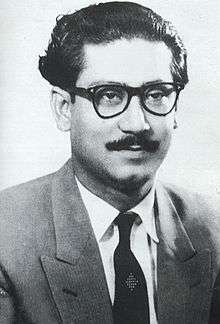





.jpg)